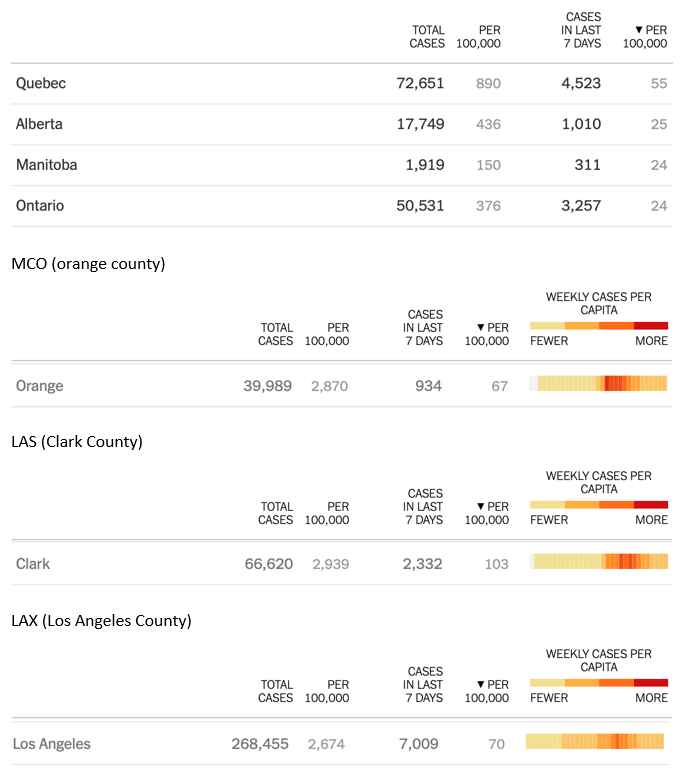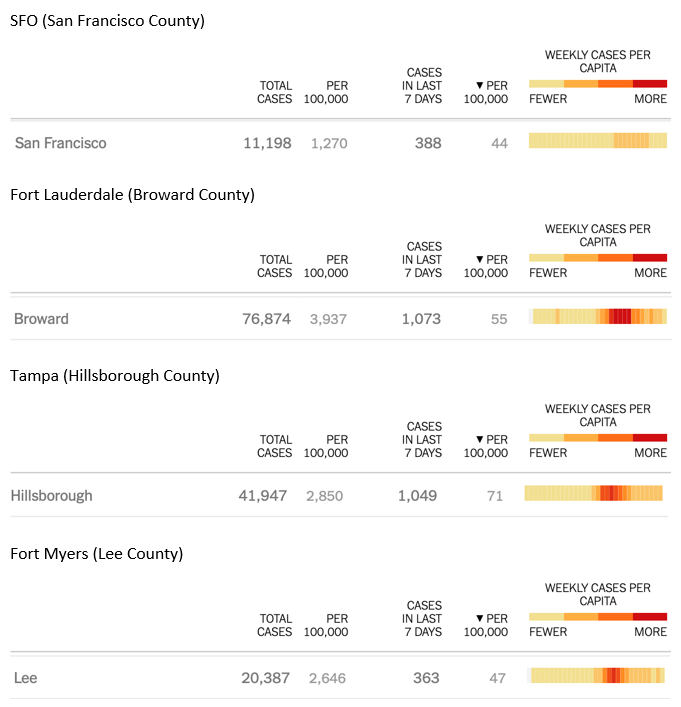On September 18th the company abruptly announced that it was changing its policy regarding US flights effective the October block month such that our members will no longer be able to opt out of flights to US destinations regardless of how they bid.
Unlike the lengthy and proper discussion prior to implementing the “opt-out policy” back in July, the Union was provided almost no advance notice before this announced. There was no consultation.
The company’s memo stated “Following our Flight Path behaviour of Safety First, Always, we’ve since implemented measures on-board our aircraft to ensure the safety of you, your colleagues and our customers. These measures include passenger screening, mandatory masks on board and customer temperature screening, in addition to making the necessary PPE available to all crew members.”
We did a quick fact check and to be perfectly clear – all of these protections were already in place prior to the policy coming into effect. The company’s statement that these are recent improvements simply isn’t true.
| Late March / Early April | TC instates requirements for screening of passengers at check-in |
| 20APR2020 | Masks are mandatory onboard |
| 05JUN2020 | Temperature checks for passengers implemented at gates |
| 12JUN2020 | All current PPE was in place |
| 15JUL2020 | Policy comes into effect |
What does the data say about the US situation?
The pandemic is an evolving situation and the Union felt it was prudent to verify the situation at the US destinations scheduled for October service. What we found is that the US is experiencing dramatically different infection rates depending on State and even city lines.
Since the company’s policy was implemented on 15JUL2020 the U.S. National 7-day average infection rate has fallen from 61,892.00 to 43,111 (28SEP2020).
We looked into the 7-day infection rates per 100K inhabitants for all the US destinations we are flying to in the month of October. For the October block month there are layovers in Los Angeles, San Francisco, Las Vegas and Orlando. There are flights (no layovers) to Fort Myers, Tampa, and Fort Lauderdale.
Currently some fall close to the range of levels being seen in Ontario and Quebec. However, Los Angeles, Orlando, Tampa and especially Las Vegas continue to trend well above levels being seen at any of our Canadian, and many other international destinations grappling with the virus. It should also be noted that Quebec is currently at the start of a partial lockdown due to its daily infection rate.
For your reference, as of 29SEP2020 here are the figures (source New York Times):


What is the Union doing?
The Union continues to impress upon the company the importance of recognizing the fact that things are not back to normal, no matter how much we would all like them to be. Layovers include hazards that extend beyond the aircraft where it is easier to control the overall environment. We will continue to encourage responsible and safe methods for the re-opening of air travel. However, this must take into account the different circumstances we all face, which affect our individual susceptibility to the SARS-CoV-2 virus. Forcing a blanket policy that “things are safe” won’t accomplish this and undermines our collective efforts to instill confidence in the travel industry, both amongst employees and customers.
What can you do?
We would like to remind you that you have a variety of PPE available to you from the employer, for use while at work and on layover. You can find the PPE guide on ACAeronet > ePub > PPE tile
The safest option on layover is to remain on the hotel premises, to always keep your physical distance between others to 2m +, wear a face covering, limit the duration of contact with others, avoid group activities, and wash your hands frequently for 20s+ or use a hand sanitizer.
You always have the right to KNOW, PARTICIPATE, AND REFUSE DANGEROUS WORK. We encourage all our members to file a health and safety complaint e-report. It really does help us help you when things are officially reported as it generates statistics and documents the many specific examples you have.
Information about the right to refuse dangerous work can be obtained by emailing rtr@accomponent.ca.
In solidarity,

